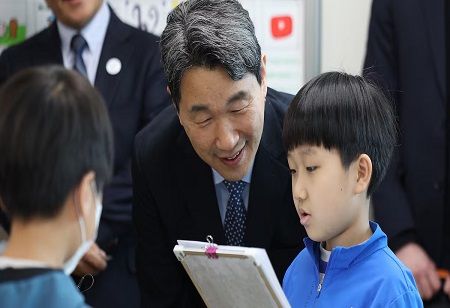South Korea's Education Minister, Lee Ju-ho, has just witnessed a classroom that used AI-based digital textbooks, further emphasizing the government's resolve to incorporate artificial intelligence into the country's educational system. The move is meant to bring about the modernization of teaching practice and heighten personalized learning experience for learners.
The government will launch AI-based digital textbooks for key subjects mathematics, English, and information technology starting 2025. The digital materials are meant to adjust to the learning pace and level of every student, offering customized learning experiences. Teachers will also gain insights from data, allowing them to effectively tailor teaching strategies.
Minister Lee underscored that the change is a critical shift away from the old, rote memorization mode classrooms to vibrant spaces that encourage student participation and learning ownership. He pointed out that the year 2025 is a watershed moment for the switch, using AI textbooks to revolutionize lessons.
But the project has faced criticism about possible excessive use of digital media by students and the readiness of teachers. The Gyeonggi Teachers Union conducted a survey which showed that 49 percent of teachers considered an AI learning tool, High-Learning, to be ‘meritless’ due to inefficiencies in time management and extra workload. Teachers were concerned about the added chores involved in running digital devices and fixing technical problems in class.
To address these issues, the Education Ministry has revised the rollout plan. Implementation of AI textbooks for Korean language and home economics has been delayed, and rollout of digital textbooks for social studies and science has been pushed back to 2027. The phased rollout will help solve screen time, literacy development, and cost issues.
Despite challenges, Minister Lee remains optimistic about the potential of AI in education. He believes that integrating AI-powered digital textbooks will bridge educational gaps and reduce social polarization by providing personalized learning opportunities. The government plans to certify and distribute these textbooks, with schools selecting appropriate materials for the upcoming academic year.
As South Korea continues down this path of educational change, continued communication with educators, parents, and students will be key to addressing fears and ensuring effective use of AI in classrooms.

